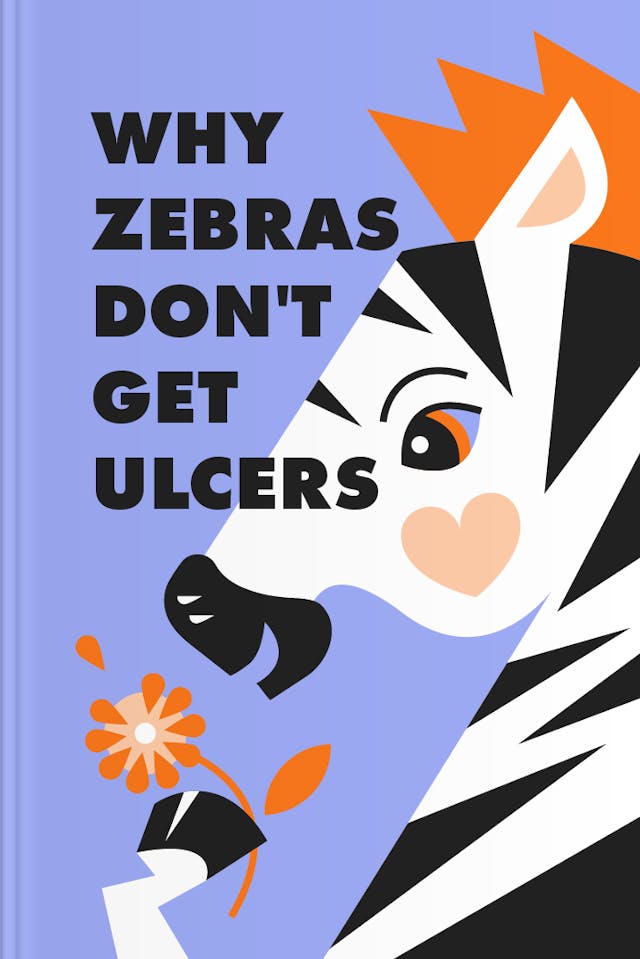You’ll learn
- How your brain attacks your heart
- When stress affects health
- Why zebras stay ulcer-free
- Keys to managing chronic stress
Protect the world’s peace. Donate to support Ukraine

first KEY POINT
Our bodies and the way they react to the most random factors are wonderfully unpredictable. Robert M. Sapolsky is convinced that there is some beauty to not knowing. We, humans, are bound to a life full of questions and very few answers. Thankfully, science always comes to save the day and answer the most pressing of queries. It is endlessly exciting, and Why Zebras Don't Get Ulcers is a testament to that.
Not so long ago, we used to think of bodily and heart matters as separate, never correlating the two. Our grandparents’ doctors would never have attributed a heart attack to stress or other emotional difficulties—everything was explained by biological factors only. A revolution in medicine completely changed the approaches toward diagnostics of the illnesses and diseases that bother us. Modern medicine considers the physical characteristics and various test results, and the workings of our very complex and only partially studied minds. Doctors and scientists now recognize the inextricable connections between the body, mind, emotions, and well-being.
This summary explains how different animals and humans perceive stress, and yes, we, two-footed rulers of nature, have a bid to learn from all creatures, great and small. You will also brush up your knowledge on triggers and mechanisms of stress and how your body reacts to it. Having spent time with this summary, you should be empowered to realize that you can control the stress in your life. In a nutshell, experiencing stress does not make you condemned, and you even can make use of it.
second KEY POINT
Stress is one factor that has the most significant influence on the body; it can make us sick. This fact is probably not of the utmost surprise to you, but have you ever thought about what the notion of stress encompasses? What we define as stress or stressful is different from what a zebra would if one were to ask its opinion. When we think of stress, we think of deadlines, conflicts at work, financial worries, and other solely human grievances. To a zebra, stress is all about survival, starvation, predators, and grave injuries. This difference is why zebras are less prone to getting ulcers than humans are.Animals are only concerned about immediate crises. They do not worry ahead of time or spend the nights without so much as closing an eye because they've got an important meeting coming up. This phenomenon is called psychological stress, and it is characteristic solely of humans and several other social primates. Psychological stress is a phenomenon that is yet to be thoroughly studied and researched, but, as you'll discover in further chapters, it opens up a lot of exciting insights about the workings of our bodies. This kind of stress is a relatively recent innovation in the grand picture of evolution—zebras or hippos would find it difficult to understand that humans can have physical and emotional responses to mere thoughts.

Continue reading with Headway app
Continue readingfirst KEY POINT
second KEY POINT
third KEY POINT
fourth KEY POINT
fifth KEY POINT
sixth KEY POINT